FutureNet
FutureNet is an open-source cross-platform social networking and communication software. It allows users to connect with friends, share posts, photos and videos, chat, and more. It is designed to provide a privacy-focused alternative to mainstream social networks.

FutureNet: Open-Source Social Networking and Communication Software
A privacy-focused social networking platform allowing users to connect, share, post photos and videos, chat, and more, providing a secure alternative to mainstream social networks.
What is FutureNet?
FutureNet is an open-source, decentralized social networking platform launched in 2019. It is designed to provide an ethical, privacy-focused alternative to mainstream centralized social networks like Facebook and Twitter.
Some key features of FutureNet include:
- Encryption - All data and communications on FutureNet are end-to-end encrypted.
- Decentralization - Data is stored in a distributed way across the network rather than centralized servers. This enhances privacy and prevents censorship.
- Customizability - Users have granular control over their privacy settings and what data is shared.
- Open Source - The codebase is transparent and open to independent security audits. Anyone can host their own FutureNet server.
- Cross-Platform - Native apps are available for iOS, Android, Windows, Linux and macOS.
- Social Features - Users can connect with friends, share status updates, photos, videos and links, comment, like, chat privately and in groups, and more.
By putting privacy first and giving users control over their data, FutureNet aims to restore personal agency and autonomy in social networking.
FutureNet Features
Features
- Open source and cross-platform
- User profiles and friend connections
- News feed to see posts from friends
- Photo and video sharing
- Private and group chats
- Decentralized architecture
Pricing
- Open Source
- Free
Pros
Free and open source
Strong privacy and security
Customizable and extensible
Active development community
No ads or monetization
Cons
Smaller user base than mainstream networks
Limited features compared to larger platforms
Requires some technical knowledge to self-host
Decentralized model can be slower
Official Links
Reviews & Ratings
Login to ReviewThe Best FutureNet Alternatives
Top Social & Communications and Social Networking and other similar apps like FutureNet
Facebook is a popular social networking platform launched in 2004. It allows users to connect with friends, family, coworkers, and people with shared interests. As of 2022, Facebook has over 2.9 billion monthly active users worldwide.Some key features of Facebook include:News Feed - See updates from friends in real-timeProfile -...
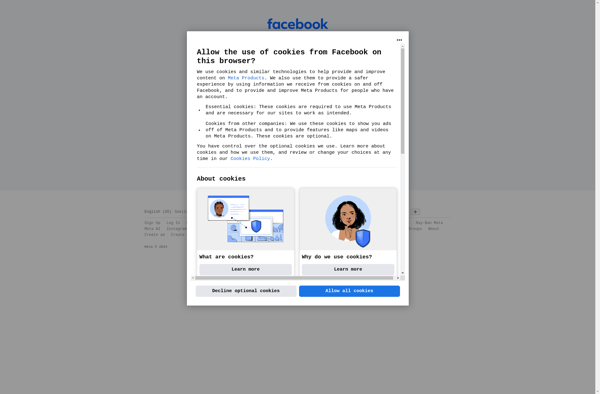
VK
VK is a Russian online social media and social networking service based in Saint Petersburg. VK allows users to message each other, join groups and public pages, share and tag images, audio and video, and play browser-based games.VK was launched in 2006 as a Facebook-inspired social networking site. It quickly...
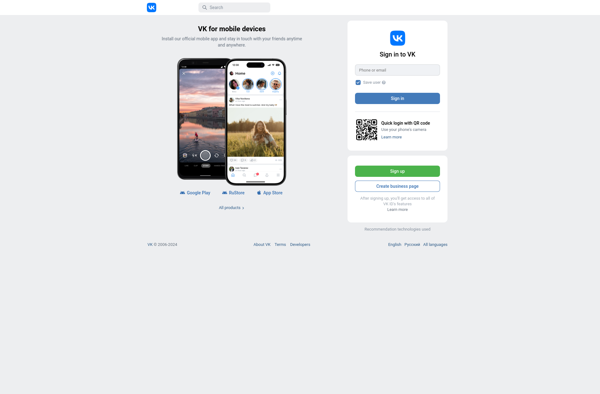
Gab
Gab is a social networking website launched in 2016 that bills itself as a free speech alternative to mainstream platforms like Twitter and Facebook. It has become popular among some conservative, alt-right, and far-right users who feel their views are censored on other sites.Gab's key features include:Minimal content moderation -...
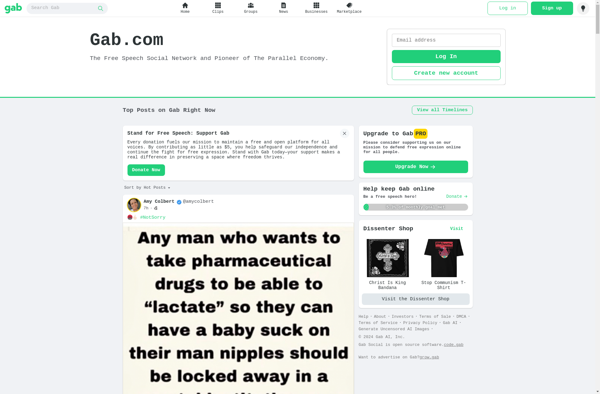
Minds
Minds is an open-source, privacy-focused social networking platform launched in 2015. It emphasizes free speech and does not censor or filter content posted by users, except in cases of illegal content.Some key features of Minds include:Encryption - Content and conversations are encrypted for privacy.Anonymity - Users can browse anonymously without...
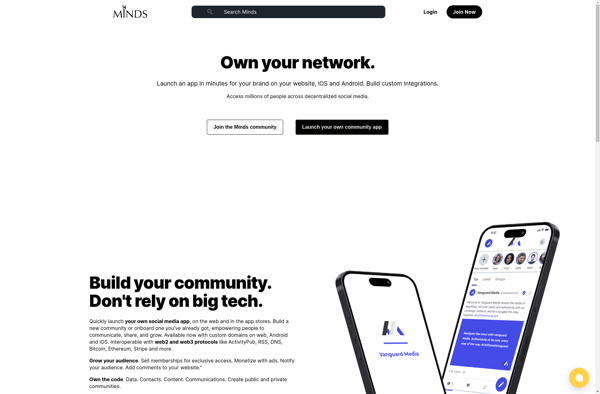
Diaspora
Diaspora is a decentralized, open source social networking platform launched in 2010. It emphasizes user privacy and control over data sharing.As a decentralized network, Diaspora allows users to host their profile and data on independently run servers called pods. This avoids a central entity having control over the network. Pods...

Friendica
Friendica is an open-source, decentralized social networking platform launched in 2010. It is designed to be privacy-focused and ad-free, allowing users to have more control over their information and data.Some key features of Friendica include:Federated - able to connect with users on other Friendica servers or compatible platforms like Mastodon...
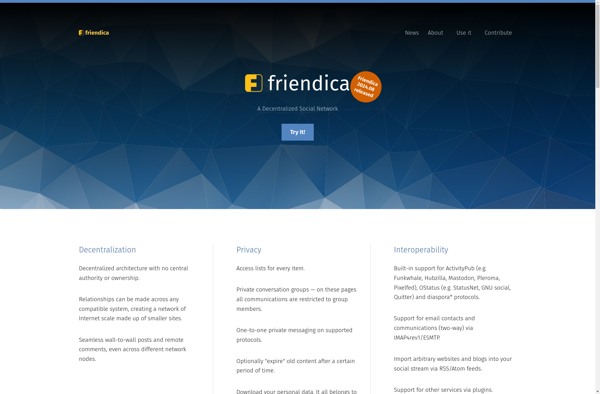
Bluesky
Bluesky is an open-source, decentralized social media protocol and platform started by Twitter founder Jack Dorsey in 2019. It is still in active development.The goal of Bluesky is to create an ethical, non-profit alternative to commercial social networks by building an open and decentralized standard for social media based on...
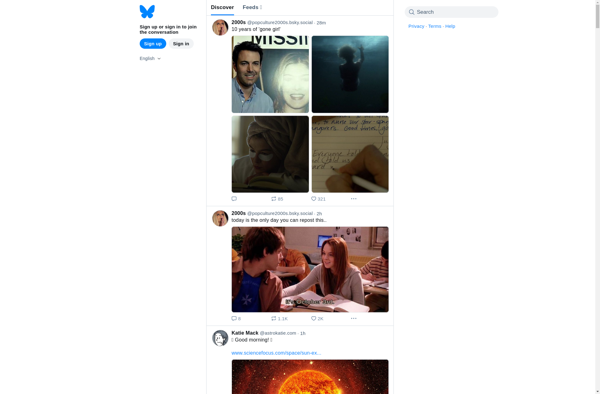
BuddyPress
BuddyPress is an open-source social networking software plugin that can be installed on WordPress sites to build robust social networks. It provides the tools to create user profiles, groups, forums, messaging systems, blog tracking, and more within a WordPress community.Some key features of BuddyPress include:User profiles - Allow members to...
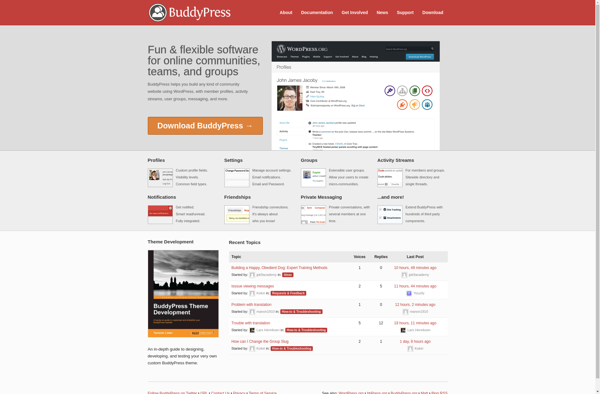
GNU social
GNU social is a free, decentralized and open source social networking platform developed as part of the GNU Project. It allows users to control their own data and privacy instead of having it stored on corporate servers.Some key features of GNU social include:Decentralized federated structure - users can set up...
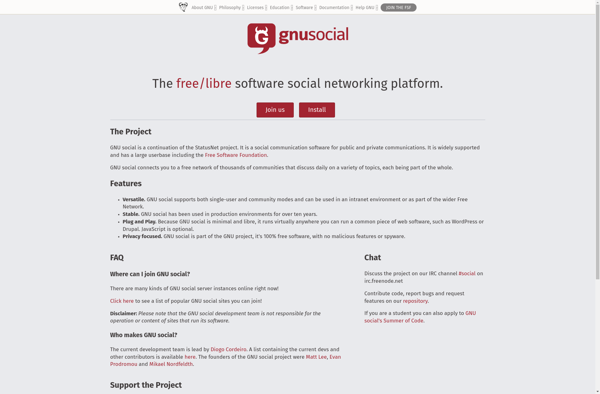
Movim
Movim is an open-source, decentralized social networking and communication platform. It operates on a federated model, meaning users on different servers can communicate with each other seamlessly while each server remains independent. Some key features of Movim include:Decentralized architecture - No single entity controls the networkEnd-to-end encryption - Messages and...
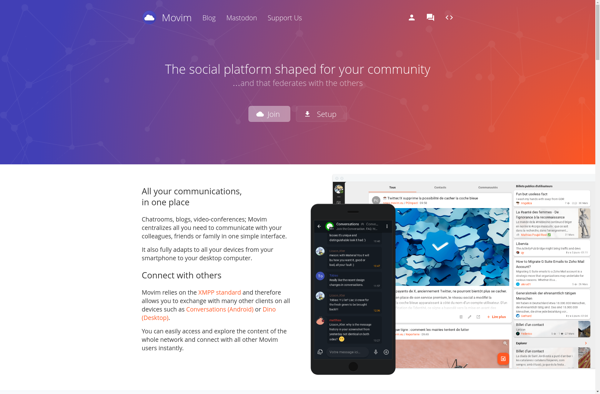
Hubzilla
Hubzilla is an open-source, decentralized social networking and communications platform built on a foundation of web server software called Elgg. Unlike traditional social networks like Facebook or Twitter that store user data on centralized servers controlled by a single company, Hubzilla allows users to have ownership and control over their...
